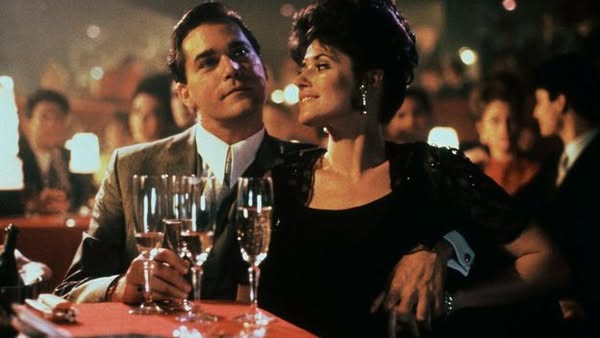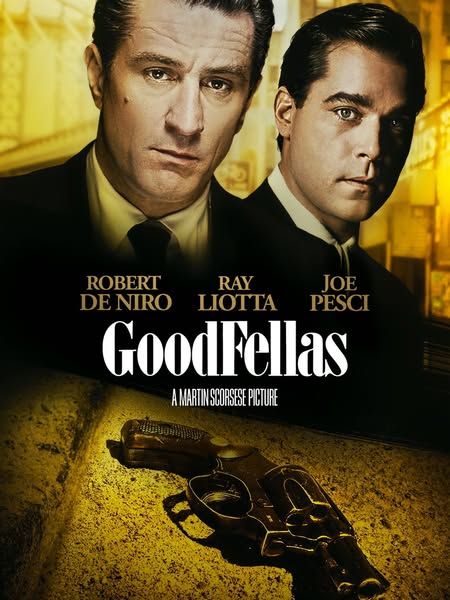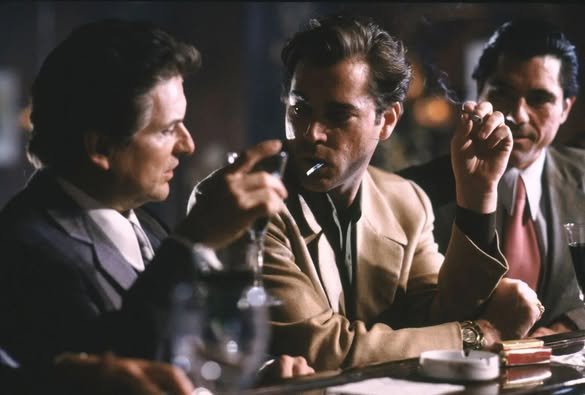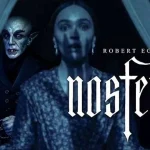Goodfellas (1990)

Goodfellas (1990), directed by Martin Scorsese, is a masterful crime drama that offers a gritty, unvarnished look into the life of organized crime in America. Based on the true story of Henry Hill, portrayed by Ray Liotta, the film chronicles his rise and fall within the mob, capturing the allure and danger of a life steeped in crime.
The narrative unfolds through Henry’s perspective, beginning in his childhood as he idolizes the local gangsters in his Brooklyn neighborhood. The film expertly portrays his initiation into the criminal world, showcasing the thrill and power that comes with being part of the mob. As he partners with figures like Jimmy Conway (Robert De Niro) and Tommy DeVito (Joe Pesci), Henry rises through the ranks, experiencing both the highs of wealth and the lows of betrayal.

Scorsese’s direction is a hallmark of the film, utilizing dynamic camera techniques and a pulsating soundtrack to create an immersive experience. The iconic use of voice-over narration allows audiences to connect deeply with Henry’s character, providing insight into his motivations and the moral ambiguities of his choices. The film’s pacing is relentless, mirroring the chaotic lifestyle of its characters and keeping viewers on the edge of their seats.

Joe Pesci’s performance as the volatile Tommy DeVito is a standout, earning him an Academy Award for Best Supporting Actor. His explosive temperament adds a layer of unpredictability, heightening the film’s tension and illustrating the violent underpinnings of mob life. The chemistry among the cast is palpable, with Liotta and De Niro delivering memorable performances that encapsulate the complexities of their characters’ relationships.
Goodfellas also delves into themes of loyalty, power, and the consequences of a life of crime. As Henry becomes increasingly entangled in the mob’s web of violence and paranoia, the film explores the fragility of loyalty in the criminal world. The stark contrast between the glamorous lifestyle and the eventual fallout serves as a cautionary tale about the costs of ambition and the inevitable decline that comes with a life of crime.

The film’s iconic scenes, such as the “Layla” montage and the infamous tracking shot through the Copacabana nightclub, have cemented its status in cinematic history. Scorsese’s attention to detail and his ability to blend humor with brutal realism create a nuanced portrayal of the mob lifestyle that resonates with audiences.
In summary, Goodfellas is a seminal work that redefined the crime genre, combining superb direction, compelling performances, and a powerful narrative. Its exploration of the complexities of loyalty and ambition, set against the backdrop of organized crime, makes it a timeless classic that continues to influence filmmakers and captivate audiences. The film’s legacy endures, solidifying its place as one of the greatest films in cinematic history.











